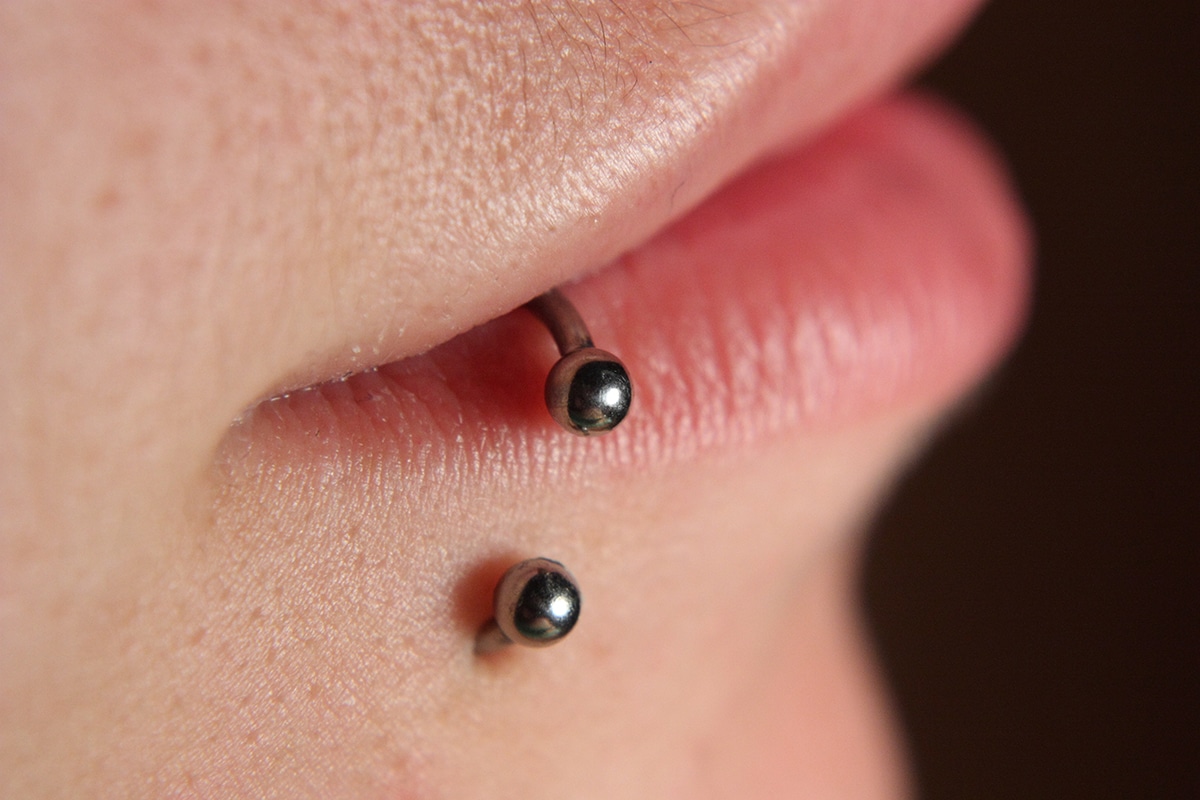
Are Your Piercings Ruining Your Smile?
Although body piercings are a form of self-expression, oral piercings such as those of the tongue, lip, and cheek can harm your teeth and gums. Complications from piercings should be considered before considering getting piercings or continuing to keep an oral piercing.
While you might already know some of the risks, you may be surprised by others. Oral piercing complications can arise during the oral-piercing procedure, immediately after its completion, or over a longer period.
Under guidance from the American Dental Association (ADA), your dental professionals want you to know the risks of oral piercings.
What are the Complications?
Complications that result from oral piercings include:
- Pain & Swelling – Because piercing involves puncturing through healthy tissue, the affected area reacts with pain and swelling. While the pain & swelling may subside, while it is active, patients may be unable to thoroughly clean their teeth & gums. Swelling may interfere with eating & speaking.
- Bad breath – Because piercing jewelry covers oral tissue, proper brushing is more difficult. Without proper brushing, plaque bacteria & food debris can accumulate around piercings causing bad breath.
- Infection – An overaccumulation of bacteria can lead to infection around the piercing. Signs of infection can be redness, swelling, pain, and a foul odor. Without treatment, oral infections can lead to serious health issues.
- Changes in saliva flow – Oral piercings can increase saliva flow. Typically, healthy saliva flow is a good thing because it helps to prevent tooth decay. However, too much saliva flow can sometimes cause more buildup of calculus (tartar), which is calcified plaque that hardens on teeth and under gums. Calculus can only be removed with professional dental cleanings.
- Dental appointment challenges – Not only can oral piercings cause challenges for your dental professional during cleanings & fillings, they can also interfere with diagnostic tools such as x-rays.
- Gum recession – Because the metal of the piercing can rub against gums when speaking, chewing, or moving the piercing out of habit, it can cause gum tissue to recede. Gum recession sometimes requires gum surgery to correct.
- Gum disease – Because harmful bacteria can accumulate in a mouth with oral piercings, periodontal disease (gum disease) can result. Periodontal disease is an infection that can lead to the need for surgery. Left untreated, it can cause tooth loss and affect your overall health.
- Tissue trauma – The ADA has reported instances of the jewelry becoming embedded in surrounding oral tissues, requiring surgical removal.
- Damage to teeth & dental work – Because oral piercings are a foreign metal material that can shift and move within the mouth, they can chip teeth and crack or damage existing dental work.
- Changes in speaking & chewing – Oral piercings act as an obstacle that can impede one’s normal chewing ability. Speaking can also change, especially for those with tongue piercings.
- Formation of scar tissue & keloid formation – Because of the puncture trauma of a piercing procedure, scarring can form. A more noticeable and raised kind of scar called a keloid can also form which can grow quite large and may need to be surgically removed.
- Obstructed airway – Swelling from infection can cause breathing problems. In addition, if a piercing dislodges while sleeping, speaking, or chewing, it may get lodged in the back of the throat and cause airway obstruction or choking danger.
Are the Complications Common?
These complications are more common than you may think, according to a review by the American Dental Association (ADA). They report that in a recent study, close to 50% of individuals with lip or tongue piercings had gum recession. In addition, in those with tongue piercings, 26% showed some level of tooth damage.
One alarming and cautionary tale that the ADA reported involved a 25-year old patient who developed Ludwig’s angina, a rare skin infection of the floor of the mouth. This infection spread throughout her mouth just days after a tongue piercing. Swelling from the infection was so severe that the patient required hospitalization and intubation to open her airway. Although she was given antibiotics, they did not resolve the infection. The only way to decompress the swelling was to surgically remove the barbell-shaped tongue piercing.
While not every patient has complications, understanding the risks is important for anyone considering an oral piercing. And for anyone who already has oral piercings, being able to recognize risks is important for prevention of a potentially serious condition.
Can Risks Be Reduced?
If you decide to have your mouth pierced or you choose to keep an existing oral piercing, be aware that you must pay more attention to your mouth than you would otherwise. Talk to your dental professionals about whether you should schedule more frequent dental visits. You may need to visit the dentist three or four times a year to make sure you do not develop permanent damage to your teeth & gums.
Proper oral hygiene is necessary to rid the area of harmful bacteria that could cause an infection. Be sure to remove food and debris around the piercing site after every meal. Good oral hygiene habits such as brushing and flossing daily are essential to reduce your risks. Avoid playing with your piercing against your teeth or gums because that may cause gum recession or tooth fracture.
Contact your dentist immediately if you show any signs of infection such as pain, swelling, redness, or unusual odor or discharge. Your dental professionals are here to answer questions so that you can make the best decision for your oral health!



